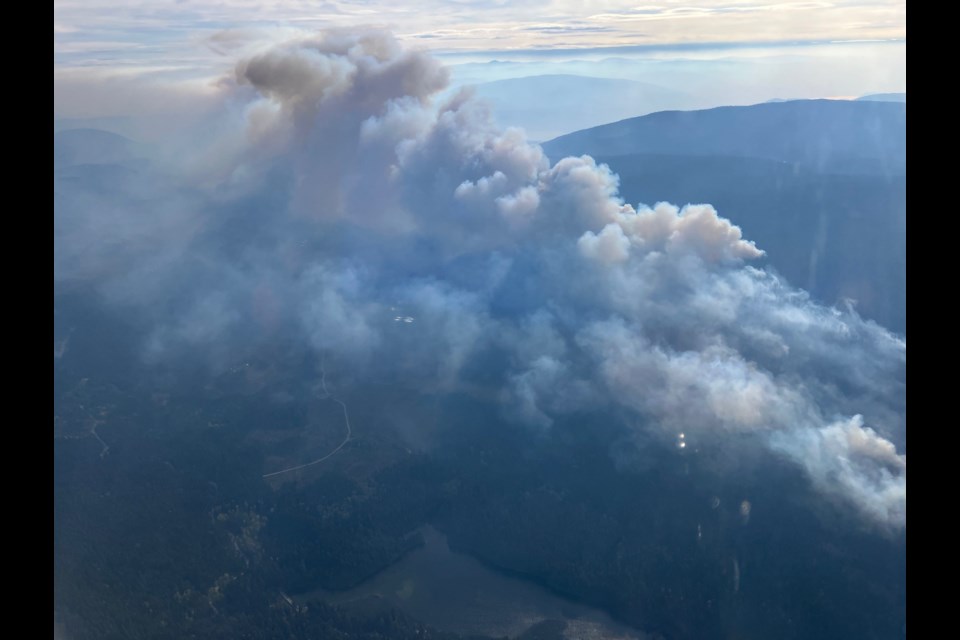British Columbians are going to have to live with the health effects of huge forest fires for decades to come and need to be prepared to protect themselves individually and as communities, Union of BC Municipalities conference delegates heard Sept. 19.
“We are going to have to face this again and again and again,” Health Minister Adrian Dix said.
He said the province needs to ensure it can be resilient in the face of forest fires, and that this year was the worst .
What that means for the health system, he explained, is building it so that it meets the demands created by wildfires and their accompanying smoke.
He said it means training and hiring more nurses and providing greater support to health workers as they work with affected people in communities.
And, he stressed, among those most affected by fires and the resulting evacuation alerts and orders are the elderly living in care homes.
In Interior Health alone this summer, Dix said 985 seniors had to be evacuated, something that takes staff and ambulances when the rest of the community is also placing demands on the health-care system. Many already suffer from respiratory issues and mental health concerns such as dementia, which makes moving them and disrupting their routines a major undertaking, the minister noted.
Moreover, Dix said, the people doing the evacuation work are facing the stresses of working under the threat of the wildfires, perhaps wondering if their homes will be there when they return.
He said the province has added 5,400 net nurses to the system recently.
“Nobody thinks that’s close to enough,” he said.
Armel Castellan, a warning preparedness meteorologist with Environment and Climate Change Canada, said drought conditions that lead to wildfires are coming earlier and spread from B.C. to Saskatchewan.
“We were getting July temperatures in the month of May from coast to coast to coast,” he said.
Meanwhile, atmospheric rivers are going to keep coming and they’re going to get stronger, he added.
“We are on a trajectory,” he said, adding that in a few decades, conditions now “will look like a walk in the park.”
Dr. Angela Yao, a scientist with Environment Health Services and the B.C. Centre for Disease Control, said “wildfires and wildfire smoke are here to stay and it is something that we will have to learn to live with.”
She said wildfire smoke has become the most important contributor to extreme air events in B.C., and that fine particulate matter in smoke can get deep into lungs causing inflammation and other problems.
Yao said people should get out of smoke as soon as it begins. Waiting until it becomes really smoky isn't recommended as damage might have already begun, she explained.
Yao said buildings should be retrofitted with good air-filtration systems.
“The more vulnerable should have a personal action plan,” she said.


